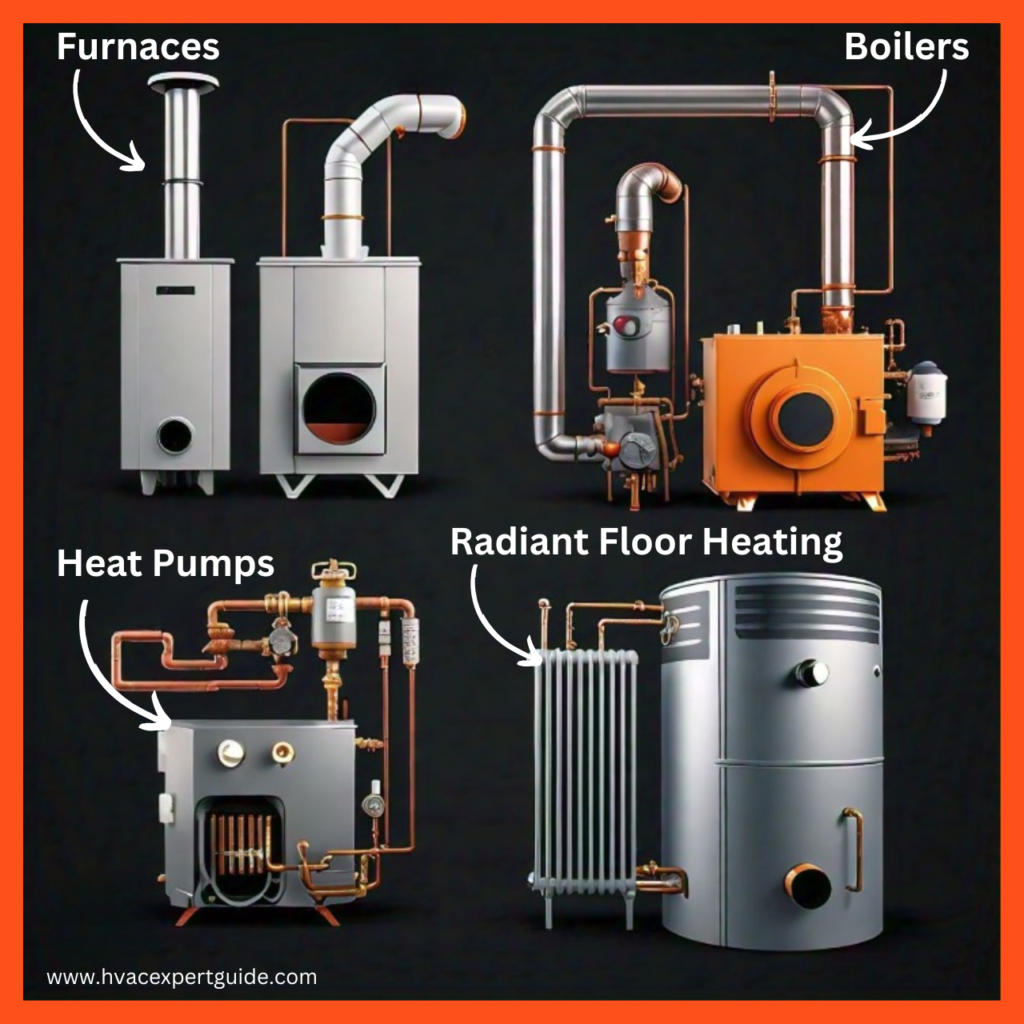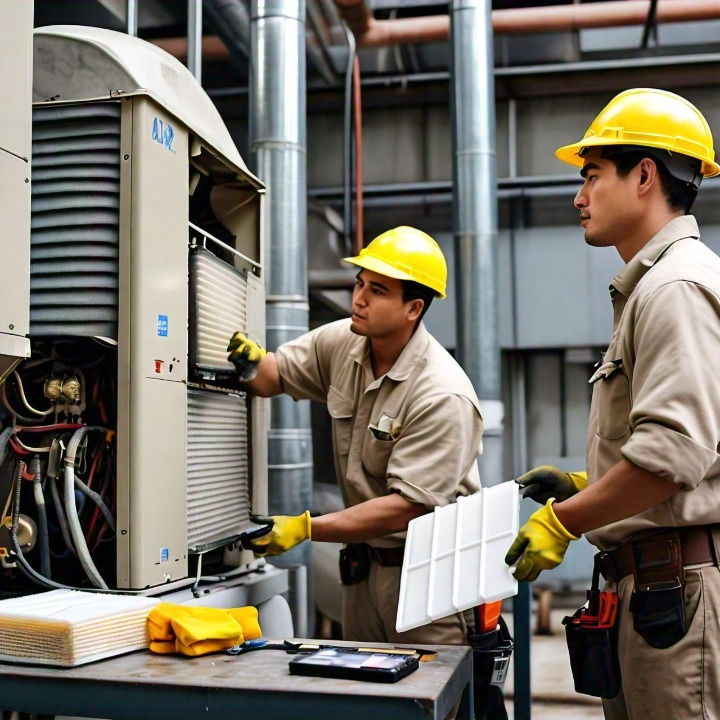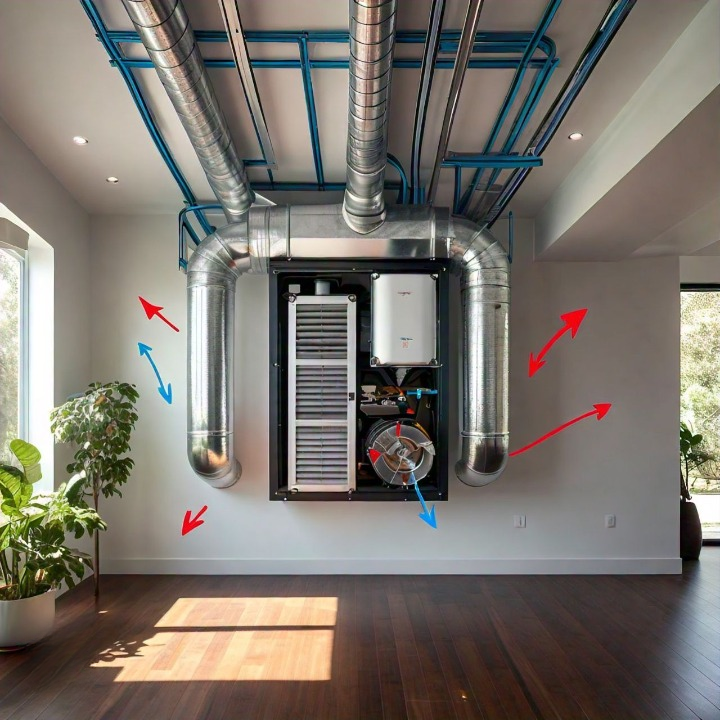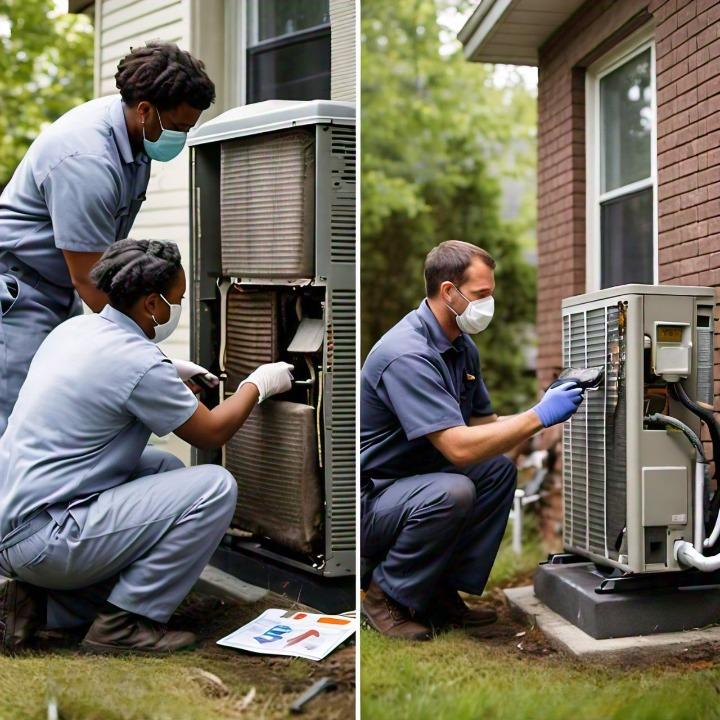When it comes to maintaining a comfortable and healthy home environment, your heating, cooling, and ventilation systems play a vital role. Whether you’re building a new house, upgrading an existing system, or simply looking to make informed decisions, this guide covers everything you need to know.
Table of Contents
- Introduction to HVAC Systems
- Understanding Heating Systems
- Types of Heating Systems
- Tips for Efficient Heating
- Cooling Systems Demystified
- Types of Cooling Systems
- Energy-Saving Hacks for Cooling
- The Importance of Ventilation
- Types of Ventilation Systems
- Indoor Air Quality Tips
- Choosing the Right System for Your Home
- Maintenance and Care
- Seasonal Maintenance Tips
- DIY vs Professional Servicing
- Top FAQs on HVAC Systems
- Conclusion and Free Gift
1. Introduction to HVAC Systems
HVAC stands for Heating, Ventilation, and Air Conditioning. These systems work together to regulate indoor temperature, ensure proper air circulation, and maintain air quality. Investing in a suitable HVAC system can enhance your comfort, reduce energy bills, and improve overall health.
2. Understanding Heating Systems
Types of Heating Systems
- Furnaces: Most common in the U.S., using gas, oil, or electricity to heat air.
- Boilers: Use water to produce radiant heat, ideal for even heating.
- Heat Pumps: Efficient systems that provide both heating and cooling.
- Radiant Floor Heating: Heats through floor surfaces for consistent warmth.
Tips for Efficient Heating
- Upgrade Insulation: Prevent heat loss by insulating walls, ceilings, and floors.
- Use a Programmable Thermostat: Automatically adjust temperatures based on your schedule.
- Seal Air Leaks: Check windows, doors, and vents for drafts.

Image : Heating system types.
3. Cooling Systems Demystified
Types of Cooling Systems
- Central Air Conditioning: Provides whole-house cooling.
- Ductless Mini-Split Systems: Ideal for targeted cooling.
- Window Units: Affordable but less energy-efficient.
- Portable ACs: Flexible option for small spaces.
Energy-Saving Hacks for Cooling
- Use Ceiling Fans: Enhance air circulation and reduce AC load.
- Install Solar Screens: Block sunlight to reduce indoor heat gain.
- Service Your AC Regularly: Clean filters and check refrigerant levels.

Image : showcasing the impact of cleaning an AC filter.
4. The Importance of Ventilation
Types of Ventilation Systems
- Natural Ventilation: Open windows and doors for fresh air.
- Mechanical Ventilation: Includes exhaust fans and air exchange systems.
- Hybrid Systems: Combine natural and mechanical approaches.
Indoor Air Quality Tips
- Use Air Purifiers: Remove dust, allergens, and pollutants.
- Avoid VOC Products: Choose low-emission paints and cleaners.
- Control Humidity Levels: Use a dehumidifier to prevent mold growth.

Image : Diagram of a whole-house ventilation system here.
5. Choosing the Right System for Your Home
- Assess Your Climate: Warm regions benefit from efficient cooling, while colder areas prioritize heating.
- Consider Your Budget: Factor in installation costs and long-term energy savings.
- Energy Ratings: Look for ENERGY STAR-rated systems to save on utility bills.
Pro Tip: Include a downloadable checklist for choosing the best HVAC system based on your needs.
6. Maintenance and Care
Seasonal Maintenance Tips
- Spring and Fall: Check ducts, filters, and thermostat settings.
- Winter: Ensure heating systems are operational and vents are clear.
- Summer: Service AC units and clean coils.
DIY vs Professional Servicing
- DIY: Replace filters, clean vents, and check outdoor units for debris.
- Professional: Annual inspections and advanced diagnostics.

Image Tip: Add a step-by-step infographic on cleaning HVAC filters.
7. Top FAQs on HVAC Systems
- How often should I service my HVAC system? Annual servicing is recommended to maintain efficiency.
- What size system do I need? Consult an HVAC professional for a load calculation based on your home size and insulation.
- How can I improve energy efficiency? Regular maintenance, proper insulation, and smart thermostats are key.
8. Conclusion and Free Gift
Maintaining an efficient and well-functioning HVAC system is essential for a comfortable and healthy home. By following the tips in this guide, you’ll save on energy bills and extend the life of your systems.




